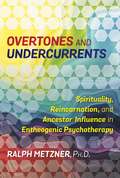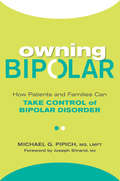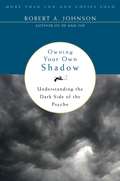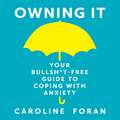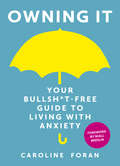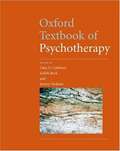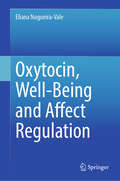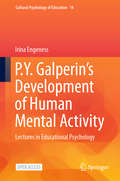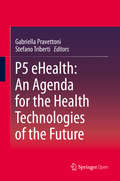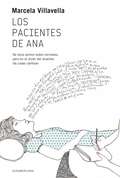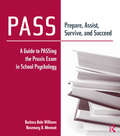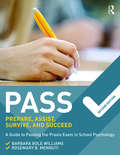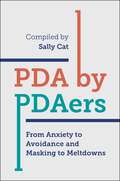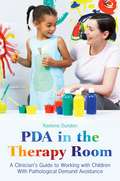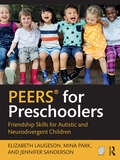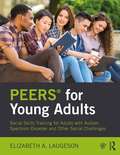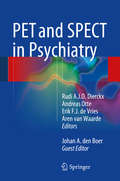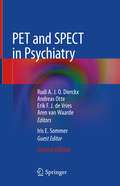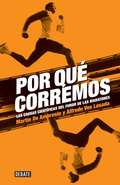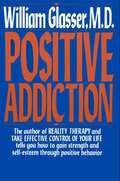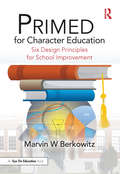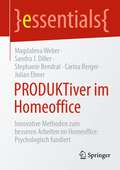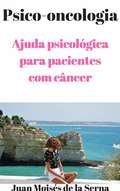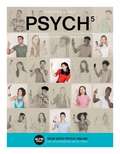- Table View
- List View
Overtones and Undercurrents: Spirituality, Reincarnation, and Ancestor Influence in Entheogenic Psychotherapy
by Ralph MetznerStories and practices from the casebook of pioneering transpersonal psychotherapist Ralph Metzner • Shows how psychological problems often derive from factors not considered in conventional psychotherapy, such as prenatal imprints and ancestral connections • Shares 15 detailed case histories from Metzner’s more than 50 years of practice • Describes how guided imagery meditations, yogic light-fire practices, and selective use of entheogenic substances can be integrated with transpersonal psychotherapy and bring about deep healing Drawing on more than 50 years’ experience as a transpersonal psychotherapist, Ralph Metzner explores the spiritual overtones, karmic undercurrents, and ancestral connections that shape our individual psychologies. Sharing 15 detailed histories from his casebook and the innovative practices he uses in his therapeutic sessions, Metzner shows how the psychological problems we confront often derive from factors not considered in conventional psychotherapy, such as birth trauma, unconscious imprints from prenatal existence, memories from past lives, ancestral and familial soul connections, and even psychic intrusions. The case histories he describes include a wide spectrum of practices, such as the use of quiet meditative retreat, guided regressions, as well as imagery visualizations amplified by entheogens. He describes how tuning in with the spiritual overtones of our being and the karmic undercurrents of our lives can resolve issues such as a fear of intimacy, help heal the after-effects of abuse and abortion, reconcile estranged parental and ancestral relationships, dissolve fears left over from past incarnations, and convert malignant presences into protective allies. In addition to guided meditations, visualizations, and yogic light-fire exercises, the practices in his psychotherapy sessions at times include the selective use of small amounts of psychedelics, mind-expanding substances functioning to amplify awareness of the subtler realms of consciousness. Part of each case history gives a description of the particular visualization used, adding to the book’s practical use as a guidebook for transpersonal psychotherapists. Through the healing experiences he describes, Metzner reveals how attending to karmic undercurrents and spiritual overtones can often bring about a peaceful resolution to long-standing distress and spiritual alienation.
Owning Bipolar: How Patients and Families Can Take Control of Bipolar Disorder
by Joseph Shrand Michael G. Pipich“Essential reading, not only for the person learning to own their bipolar, but for the support system members and treatment providers walking alongside them in their journey to hope and healing.” —Sally Spencer-Thomas, PsyD, president United Suicide Survivor’s International Knowledge is power, and grasping the basics of bipolar disorder can give you the power you need to detect it, accept it, and own the responsibility for treatment and lifelong disease management. With its three-phase approach, Owning Bipolar can help you and your loved ones become experts at an illness that has called the shots in your life for too long. Now it’s time for you to take control. · The Pre-stabilization phase and recognition: confronting the causes of bipolar and the effects, including depression, anxiety, loss of energy, avoidance of responsibilities, and suicidal thoughts · The Stabilization phase and acting on it: starting effective medication, accepting the disease, and treating different types of bipolar · The Post-stabilization phase and living with it: undertaking long-term maintenance, accepting your new identity, and coming to terms with your responsibilities, and the responsibilities of your caregivers Accessible and encouraging, and accented with empathetic first-hand stories from people who share the disorder, this book is a vital companion for readers to help them understand, treat, and live successfully with bipolar. “Will provide clarity and understanding to a seemingly complex and confusing psychiatric condition.” —David B. Weiss, MD, FAPA
Owning Your Own Shadow
by Robert A. JohnsonA bestselling author shows how we can reclaim and make peace with the "shadow" side of our personality.
Owning it: Your Bullsh*t-Free Guide to Living with Anxiety
by Caroline ForanTHE NUMBER ONE BESTSELLER - For readers of You Are a Badass ... A bullsh*t free perspective and a no-frills account of anxiety from the front line.For those facing the same struggle, Caroline explores exactly what anxiety is, its triggers and the various treatments - from CBT, acupuncture, diet and the often debated role of medication - that worked for her. With honesty, humour and a bullsh*t free perspective, Owning It is a no-frills account of anxiety from the front line.Through the filtered lens of social media, it may seem like life's a peach, but for lots of people - journalist and author Caroline Foran included - anxiety is always bubbling beneath the surface. Here, she chronicles her experiences. From being unable to cope with the thought of venturing outside, to walking away from her fast-paced job, to the different, and sometimes controversial, treatments available - from Cognitive Behavioural Therapy to acupuncture to medication - Caroline shows us how she eventually found a way of owning her anxiety so that it doesn't own her.With extensive research and help from the experts, Owning It is written with honesty and a bullsh*t-free perspective; consider it your ultimate, practical guide that aims to get you feeling good again.(P)2018 Hachette Books Ireland
Owning it: Your Bullsh*t-Free Guide to Living with Anxiety
by Caroline Foran'Offers a frank and funny approach to the ins and outs of anxiety - what it is, why it happens, and how to manage it. I love Caroline Foran's message of self-acceptance and leaning into mental illness rather than trying to outrun it. Highly recommended!' Sarah Knight, bestselling author of Calm the F**k DownTHE NUMBER ONE BESTSELLER - A bullsh*t free perspective and a no-frills account of anxiety from the front line.Through the filtered lens of social media, it may seem like life's a peach, but for lots of people - journalist and author Caroline Foran included - anxiety is always bubbling beneath the surface. Here, she chronicles her experiences. From being unable to cope with the thought of venturing outside, to walking away from her fast-paced job, to the different, and sometimes controversial, treatments available - from Cognitive Behavioural Therapy to acupuncture to medication - Caroline shows us how she eventually found a way of owning her anxiety so that it doesn't own her.With extensive research and help from the experts, Owning It is written with honesty and a bullsh*t-free perspective; consider it your ultimate, practical guide that aims to get you feeling good again.
Oxford Textbook of Psychotherapy
by Glen O. Gabbard Judith Beck Jeremy HolmesThe first of its kind, this is a 'must have' volume for all trainee and practicing psychological therapists, whatever their background - psychiatry, psychology, social work, and nursing.
Oxytocin, Vasopressin, and Related Peptides in the Regulation of Behavior
by Martin Kavaliers Elena Choleris Donald W. PfaffThe mammalian neurohypophyseal peptide hormones oxytocin and vasopressin act to mediate human social behavior - they affect trust and social relationships and have an influence on avoidance responses. Describing the evolutionary roots of the effects that these neuropeptides have on behavior, this book examines remarkable parallel findings in both humans and non-human animals. The chapters are structured around three key issues: the molecular and neurohormonal mechanisms of peptides; phylogenetic considerations of their role in vertebrates; and their related effects on human behavior, social cognition and clinical applications involving psychiatric disorders such as autism. A final chapter summarizes current research perspectives and reflects on the outlook for future developments. Providing a comparative overview and featuring contributions from leading researchers, this is a valuable resource for graduate students, researchers and clinicians in this rapidly developing field.
Oxytocin, Well-Being and Affect Regulation
by Eliana Nogueira-ValeThis book brings together neuroscience and psychoanalysis to explain the complex interactions between neurobiological and psychological phenomena involved in the development of human attachment and affect regulation. The author reviews research from the burgeoning fields of affective neuroscience and neuropsychoanalysis to tell the story of how the discovery of a specific hormone – oxytocin – paved the way for the study of the neurobiological bases of emotions in a way that can contribute to integrate neuroscientific research into psychotherapy, especially for the treatment of anxiety disorders. The book starts by presenting a brief history of neuroscience, spanning from the discovery of oxytocin, at the beginning of the 20th century, until the emergence of affective neuroscience and neuropsychoanalysis as new scientific fields at the turn of the 20th to the 21st century. Then it reviews the long tradition of psychoanalytic research on human attachment starting with John Bowlby’s seminal Attachment Theory and explains how these early findings have been complemented by neuroscientific and psychological research on brain development and affect regulation. Finally, the two last chapters of the book show how this prolific dialogue between neuroscience and psychoanalysis can contribute to the future of psychotherapy. Oxytocin, Well-Being and Affect Regulation was originally published in Portuguese for the Brazilian market and this English edition for the international market is a revised version with two new additional chapters. It will be of interest to both students and professionals from different fields within the behavioral and health sciences, such as psychology and medicine, who will find in this book a brief and accessible introduction to key topics in the emerging fields of affective neuroscience and neuropsychoanalysis. The translation of the original manuscript in Portuguese into English was done with the help of artificial intelligence. A subsequent human revision was done primarily in terms of content.
P.Y. Galperin's Development of Human Mental Activity: Lectures in Educational Psychology (Cultural Psychology of Education #14)
by Irina EngenessThis open access book introduces the legacy of Piotr Galperin to a wider audience of researchers, educators and psychologists. Previous translations of Galperin’s work present only some aspects of his conceptual thinking; however, his main contribution to the general, genetic and pedagogical psychology as a unique holistic and systemic approach to studying of psychological phenomena and processes, mechanisms of their formation and development, is still quite unknown in most parts of the world.The eight lectures chosen for the book have been translated from Russian for the first time, and they belong to the Study of the Formation of Human Mental Activity from Galperin’s collection of the Lectures in Psychology (Galperin, 2002). These eight lectures present the central ideas of Galperin’s pedagogical theory, and they conceptualise learning to learn approach and argue how teaching and learning process can enhance the development of higher mental functions with learners and therefore enhance the development of students as learners. These ideas may be of primary importance to educational practitioners and researchers interested in developmental learning and teaching approach given the current concerns of educational practice that schools struggle to prepare students for their adult and the need to develop the capacity in lifelong learning with students in the 21st century.
P5 eHealth: An Agenda for the Health Technologies of the Future
by Gabriella Pravettoni Stefano TribertiThis open access volume focuses on the development of a P5 eHealth, or better, a methodological resource for developing the health technologies of the future, based on patients’ personal characteristics and needs as the fundamental guidelines for design. It provides practical guidelines and evidence based examples on how to design, implement, use and elevate new technologies for healthcare to support the management of incurable, chronic conditions. The volume further discusses the criticalities of eHealth, why it is difficult to employ eHealth from an organizational point of view or why patients do not always accept the technology, and how eHealth interventions can be improved in the future. By dealing with the state-of-the-art in eHealth technologies, this volume is of great interest to researchers in the field of physical and mental healthcare, psychologists, stakeholders and policymakers as well as technology developers working in the healthcare sector.
PACIENTES DE ANA, LOS (EBOOK)
by Marcela VillavellaPor el ojo de la cerradura del consultorio de Ana, la psicoanalista que le da título a este libro magnético, vemos los problemas que hasta allí cargan los pacientes, esa otra parte fundamental del título y de la ecuación que se pone en juego en la consulta. Celos, amores perdidos y encontrados, miedo a la muerte pero también miedo a la vida, obsesiones, penas y pequeñas victorias diarias: los problemas de "Los pacientes de Ana" son los nuestros, y es imposible no quedar encandilado por las múltiples historias de estas páginas que, narradas con agudeza, gracia y vitalidad, logran que la ficción se parezca más que nunca a la vida misma.
PASS: A Guide to PASSing the Praxis Exam in School Psychology
by Barbara Bole Williams Rosemary B. MennutiAre you getting ready to take the Praxis Exam and looking for a resource to help as you study? In this guide, Williams and Mennuti, two veteran school psychologists who have been involved in the development, testing, and revision of the Praxis Exam, present their PASS model to help you study and achieve the best score possible: Prepare – Find out how to register for the exam, what to bring with you on the day of the test, how the score reporting process works, and how to get ready to study. Chapters review each content area in-depth, and numerous graphic organizers provide invaluable study tools. Useful sample questions with rationales for correct and incorrect answers to each question are included at the end of each chapter to test your knowledge. Assist – Doing your best on the Praxis depends on successful study habits. The authors show you practical ways to review the material effectively and make the most of your time. Survive – Feeling overwhelmed? Learn how to get organized, develop a study schedule, take care of yourself, and manage your anxiety. Succeed – Show-up for the test prepared and confident, and walk-out knowing you did your best! In this guide, you’ll also find reflections from students who have used the PASS model to prepare for the Praxis, along with their experiences taking the exam and some of the challenges they faced and how they overcame them. An accompanying CD contains all of the graphic organizers found in the text, six practice exams with answer keys, and other helpful materials for you to use as you prepare for the exam.
PASS: A Guide to Passing the Praxis Exam in School Psychology (2nd Edition)
by Barbara Bole Williams Rosemary B. MennutiBarbara Bole Williams and Rosemary Mennuti are back with a thorough update to their essential guide to preparing for and achieving the best score possible on the Praxis Exam in School Psychology. Pulling from their years of experience and hands-on involvement in the continued revision of the exam, and presented using their PASS model (Prepare, Assist, Survive, Succeed), these two veteran school psychologists have revised this easy-to-use resource to reflect the most recent exam content, professional standards, as well as the most current practical knowledge for school psychologists. Also included are student test reflections and information on how to obtain and maintain your NCSP credential
PDA by PDAers: From Anxiety to Avoidance and Masking to Meltdowns
by Sally Cat"To think of PDA as merely involving demand avoidance is to me akin to thinking of tigers as merely having stripes." This book is a unique window into adult Pathological Demand Avoidance (PDA), exploring the diversity of distinct PDA traits through the voices of over 70 people living with and affected by the condition. Sally Cat, an adult with PDA, has successfully captured the essence of a popular online support group in book form, making the valuable insights available to a wider audience, and creating a much-needed resource for individuals and professionals. Candid discussions cover issues ranging from overload and meltdowns, to work, relationships and parenting. This is a fascinating and sometimes very moving read.
PDA in the Therapy Room: A Clinician's Guide to Working with Children with Pathological Demand Avoidance
by Raelene DundonPathological Demand Avoidance (PDA) presents a unique challenge for professionals, whereby conventional therapy methods are often perceived as demands and met with opposition where they normally would have proven effective. This guide sets out the most effective strategies for clinicians to provide the best care for children with PDA, adapting conventional modes of therapy to suit their needs. Methods include indirect techniques such as play-based therapy or trauma-informed approaches enabling the child to process their experiences on their own terms. With additional guidance for supporting the families of patients and addressing common obstacles, this book provides understanding and guidance for professionals making a difference to the lives of children with PDA.
PEERS® for Preschoolers: Friendship Skills for Autistic and Neurodivergent Children
by Elizabeth Laugeson Mina Park Jennifer SandersonThis manual builds on the success of the Program for the Education and Enrichment of Relational Skills (PEERS®), an internationally renowned program used in over 150 countries and translated into numerous languages. PEERS® has now expanded to work with autistic and neurodivergent preschool-aged children, as well as those with other social challenges. Through this new manual, providers will learn about important skills to enhance positive peer interactions and friendship development for young children, how to structure sessions and encourage skill-building effectively, and how to educate and empower parents to be valuable social coaches for their children. Every chapter includes a therapist guide for each session and parent resources such as lessons, homework, handouts, worksheets, and social coaching play cards. This latest edition to the PEERS® program is ideal for professionals and educators who provide social-emotional therapeutic services and support to young children (between the ages of four to six years) diagnosed with autism or other social challenges.
PEERS® for Young Adults: Social Skills Training for Adults with Autism Spectrum Disorder and Other Social Challenges
by Elizabeth A. LaugesonPEERS® for Young Adults presents the first evidence-based group treatment program for young adults with Autism Spectrum Disorder, as well as other neurodevelopmental disorders and social challenges. Inside, readers will find a critical step forward in the dissemination of effective behavioral interventions for young adults in the form of 16 engaging group session outlines that are both user-friendly and backed by empirical research. Each session is accompanied by homework assignments and practice suggestions designed to reinforce the group’s understanding of the skills learned during each meeting. This practical resource will prove to be an invaluable reference for any clinician or educator working with this population.
PET and SPECT in Psychiatry
by Andreas Otte Rudi A.J.O. Dierckx Erik F. J. de Vries Aren Waarde Johan A. den BoerPET and SPECT in Psychiatry showcases the combined expertise of renowned authors whose dedication to the investigation of psychiatric disease through nuclear medicine technology has achieved international recognition. The classical psychiatric disorders as well as other subjects - such as suicide, sleep, eating disorders, and autism - are discussed and the latest results in functional neuroimaging are detailed. Most chapters are written jointly by a clinical psychiatrist and a nuclear medicine expert to ensure a multidisciplinary approach. This state of the art compendium will be valuable to all who have an interest in the field of neuroscience, from the psychiatrist and the radiologist/nuclear medicine specialist to the interested general practitioner and cognitive psychologist. It is the first volume of a trilogy on PET and SPECT imaging in the neurosciences; other volumes will focus on PET and SPECT in neurology and PET and SPECT of neurobiological systems.
PET and SPECT in Psychiatry
by Andreas Otte Erik F. J. de Vries Rudi A. J. O. Dierckx Aren Van Waarde Iris E. SommerThis book provides a comprehensive overview of the use of PET and SPECT in the classic psychiatric disorders such as depression, bipolar disorder, anxiety disorders, and schizophrenia. In addition, it discusses the application of these functional neuroimaging techniques in a variety of other conditions, including sleep disorders, eating disorders, autism, and chronic fatigue syndrome. The new edition has been extensively revised and updated to reflect the latest advances and results in nuclear imaging within the field. Most chapters are written jointly by a clinical psychiatrist and a nuclear medicine expert to ensure a multidisciplinary approach. This state of the art compendium will be of value for all who have an interest in the field of neuroscience, from psychiatrists and radiologists/nuclear medicine specialists to interested general practitioners and cognitive psychologists. Companion volumes on the use of PET and SPECT in neurology and for the imaging of neurobiological systems complete a trilogy.
POR QUE CORREMOS? (EBOOK)
by LOSADA D.AMBROSIO-V.Por qué cada vez más gente se calza las zapatillas para correr por la ciudad? Hay alguna razón para este sacrificio autoimpuesto? O en realidad no es un sufrimiento, sino uno de los antiguos placeres de la especie? Correr genera adicción? Está en nuestros genes de sociedades nómadas? Es una respuesta al sedentarismo de la vida moderna? Hace dos millones de años que el ser humano corre, pero nunca antes tantas personas lo hicieron como ahora. Por eso, la ciencia comenzó a buscar respuestas en el cerebro de los maratonistas. Por qué corremos explica qué le sucede desde el punto de vista biológico y psicológico a las personas que corren y, sobre todo, a quienes desafían la resistencia de su cuerpo y de su mente en las maratones; qué satisfacción o sensación siente quien corre para superar el dolor y el agotamiento. Este libro mezcla las razones científicas y sociales del fenómeno con algunas historias de los grandes corredores de todos los tiempos y arma un combo veloz e inteligente.
POSITIVE ADDICTION
by William GlasserThe author of Reality Therapy and Take Effective Control of Your Life shows readers how to gain strength and self-esteem through positive behavior.
PRIMED for Character Education: Six Design Principles for School Improvement
by Marvin W BerkowitzIn PRIMED for Character Education, renowned character educator Marvin W Berkowitz boils down decades of research on evidence-based practices and thought-provoking field experience into a clear set of principles that leaders, administrators, and teacher-leaders can implement to help students thrive. The author’s original six-component framework offers a comprehensive guide to shaping purposeful learning environments, healthy relationships, core values and virtues, role models, empowerment, and long-term development in any PreK-12 school or district. This engaging and heartfelt book features tips for practice, anecdotes from award-winning schools, and straightforward tenets from moral education, social-emotional learning, and positive psychology.
PRODUKTiver im Homeoffice: Innovative Methoden zum besseren Arbeiten im Homeoffice: Psychologisch fundiert (essentials)
by Magdalena Weber Sandra J. Diller Stephanie Bendrat Carina Berger Julian EbnerAufgrund der heutigen Arbeit in einer digitalisierten und globalisierten Welt ist auch das Homeoffice als eine Form von Telearbeit relevant. Um ein besseres Arbeiten im Homeoffice zu ermöglichen, werden in diesem essential Herausforderungen beim Arbeiten im Homeoffice adressiert und basierend auf psychologischen Modellen, Theorien und Forschungskenntnissen Produktideen für die Praxis vorgestellt. Die Ideen sollen innovative Problemlöseprozesse aufzeigen und Anstoß zu eigenen Ideen bieten.
PSICO-ONCOLOGIA - Ajuda psicológica para pacientes com câncer
by Juan Moises de la Serna KATIA ALVES LIMA BUFFOLOEste e-book aborda a problemática do câncer sob o ponto de vista psicológico, e neste segmento de estudo está centrada a Psico-Oncologia. Reúne as pesquisas mais recentes relacionadas a esta área, de modo que o paciente e seus familiares podem conhecer as últimas descobertas sobre os aspectos psicológicos em relação ao aparecimento, cuidados e tratamento de câncer. Trata-se de um e-book de consulta para ajudar a colocar em perspectiva a doença que se converteu em uma das mais comuns da atualidade.
PSYCH 5: Introductory Psychology
by Spencer RathusPSYCH's easy-reference, paperback textbook presents course content through visually-engaging chapters as well as Chapter Review Cards that consolidate the best review material into a ready-made study tool.
